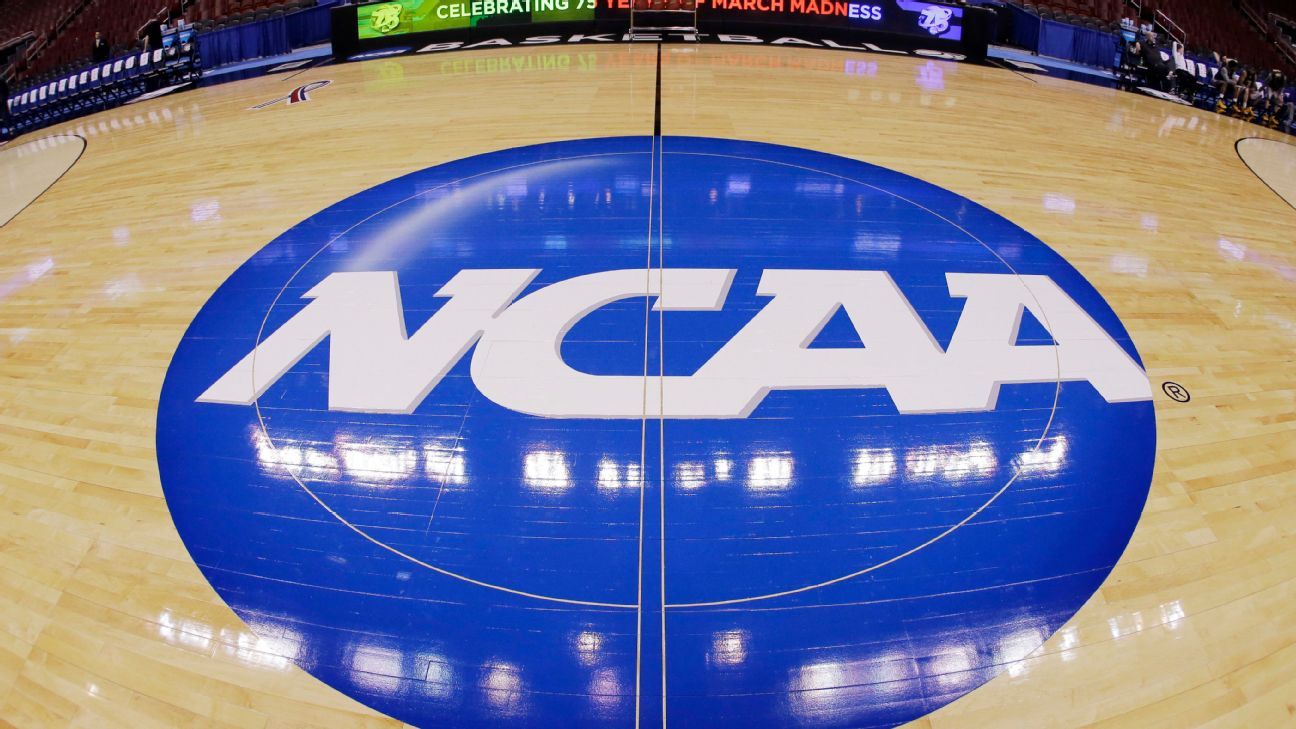College sports’ most powerful conference commissioners appear to be divided on the best way to move forward with name, image and likeness rule changes as the industry enters a crucial 10-day period for defining the future parameters for amateurism in the NCAA.
A group of commissioners — including Greg Sankey of the SEC, Jim Phillips of the ACC and Larry Scott of the Pac-12 — are urging their colleagues to consider a new and minimalist approach to regulating the soon-to-arrive marketplace for college athlete endorsement deals, according to a letter obtained by ESPN.
The letter says previous proposals to change NCAA rules will lead to “inevitable confusion, uncertainty and likely litigation against the NCAA and its member conferences and institutions.”
The NCAA’s Division I Council, which is the governing entity that votes on rule changes for the top tier of college sports, is scheduled to meet this week and expected to make a decision by the end of the month on proposed rule changes that would allow college athletes to monetize their fame without losing NCAA eligibility. New laws in at least a half dozen states that are scheduled to go into effect on July 1 will make it illegal for schools in those states to follow current NCAA policies for name, image and likeness (NIL) opportunities.
A working group appointed by the NCAA spent the last two years developing a proposed set of changes that would open some doors for college athlete endorsement deals while also setting “guardrails” to make sure that a clear distinction remains between college sports and professional leagues. The guardrails include rules that, among other items, prohibit schools from partnering with their athletes in NIL deals, require athletes to disclose the deals they sign and prohibit athletes from endorsing some types of products such as gambling websites or tobacco.
Members of the group that created that framework included Big 12 commissioner Bob Bowlsby and Ohio State athletic director Gene Smith, one of the longest-tenured and most respected administrators in the Big Ten. On Friday, their colleagues from the SEC, ACC and Pac-12 (as well as three other leaders from smaller conferences) asked the Division I Council to consider a new plan instead.
The new proposal directs schools in states that have impending NIL laws to follow their state law. In the 40-plus states that are not currently on pace to have laws in place this summer, each individual school would be responsible for developing and publishing its own policies for what kind of NIL opportunities their athletes can pursue. The only guidance to schools in creating those policies would be: A) Don’t allow school employees or boosters to pay athletes and B) Don’t allow payments to be in exchange for athletic performance or recruiting inducement.
A member of the Division I Council told ESPN on Sunday that it would be viable for all schools to develop these policies by July 1 and that the Council will consider this proposal among its NIL option in the coming week. The source said the Council is unlikely to reach a final decision on its rule changes this week. They plan to meet again on June 28. The source said this new plan provides some “gray area,” but was a “reasonable alternative” given the potential legal risks facing the NCAA and its members.
The NCAA and its members had hoped that Congress would create a federal law by July to provide the same NIL opportunities to every college athlete in the country. While several federal lawmakers have proposed bills, it’s been clear for weeks that Congressional action is not imminent.
College sports leaders are now concerned that, without the help of a federal law, any blanket restrictions imposed on all NCAA athletes could be used against them in antitrust lawsuits. The NCAA is the midst of multiple antitrust suits from current and former college athletes, who say the organization illegally restricts the earning power of its athletes.
“It would not be surprising if the same plaintiffs’ lawyers saw the passage of the NCAA Proposals as an opportunity to expand their existing lawsuits or file a host of new ones,” the commissioners wrote in the letter sent earlier this week, “ensuring that the schools, conferences, and the NCAA will continue to be in jeopardy of long‐running litigation and retroactive trebled damages claims.”
The commissioners also expressed concern that the older NCAA proposal does not solve the issue of having different rules for how athletes can make money depending on the state where they attend school. Even if the NCAA adopted the original proposed changes, some state laws mandate fewer restrictions on athletes. Other small inconsistencies between the state laws make it impossible to create one set of rules that applies to all NCAA athletes without running into conflicts with at least some states.
“We do not believe it is prudent, appropriate, or in the best interests of student‐athletes for the NCAA to move forward with adoption of NIL rules that are, upon passage, invalid on their face in most states that have adopted an NIL law,” the opposed commissioners wrote in their letter this week.
The Division I Council meets Tuesday and Wednesday this week. NCAA President Mark Emmert urged them to take action before the end of the month, according to a memo first obtained by the Associated Press last week. Emmert said that if the Council does not choose a path forward, he is prepared to take executive action to make sure all college athletes have some ability to profit from their names, images and likenesses this summer.
